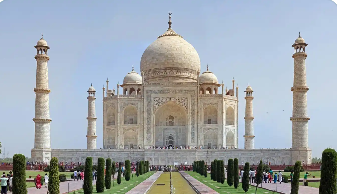Author: Prof. Engr. Zamir Ahmed Awan, Founding Chair GSRRA, Sinologist, Diplomat, Editor, Analyst, Advisor, Consultant to Global South Economic and Trade Cooperation Research Center, and Non-Resident Fellow of CCG. (E-mail: awanzamir@yahoo.com).
India, once hailed as a rising global power and the world’s largest democracy, is facing an unprecedented wave of international isolation. From diplomatic fallouts to accusations of state-sponsored extraterritorial assassinations, the nation’s international standing is under intense scrutiny. Today, at least 22 countries have reportedly limited or ceased welcoming Indian nationals, reflecting a deeper concern about the policies and actions of the Indian state under the leadership of Prime Minister Narendra Modi.
The Canadian Crisis: A Diplomatic Breakdown
The most significant blow to India’s international image came from Canada. In a shocking turn of events, Canadian Prime Minister Justin Trudeau accused the Indian government of orchestrating the assassination of Hardeep Singh Nijjar, a Canadian citizen of Indian origin and a prominent Sikh activist. Nijjar’s killing, which Trudeau described as an act of "state-sponsored murder," led to an unprecedented diplomatic crisis. Canada expelled a senior Indian diplomat, and India retaliated with the expulsion of a Canadian official. Diplomatic ties have since deteriorated, with both countries suspending formal communications and visa services.
This episode not only strained India-Canada relations but also raised questions globally about India’s adherence to international norms. It is alleged that India has engaged in similar extraterritorial operations in other countries, targeting individuals critical of its government.
Reckoning in the United States
The United States, India’s strategic partner, has also been alarmed by allegations of Indian interference on its soil. Reports suggest that individuals of Indian origin, critical of the Modi government, have been surveilled and targeted. Such incidents undermine trust and create tensions in bilateral relations, further isolating India from its allies.
A Pattern of Assassinations and Interference
India’s alleged involvement in political assassinations and interference is not new. Over the years, India has been accused of meddling in its neighbors’ affairs, often with fatal consequences:
• Bangladesh: India’s involvement in the assassination of political figures critical of its influence has long been speculated.
• Sri Lanka: India’s support for certain factions during the civil war and subsequent political assassinations have left a bitter legacy.
• Nepal: Indian interference in Nepalese politics has often been criticized, with allegations of fostering instability.
• Pakistan: From cross-border terrorism to the targeted killing of political figures, India’s actions have fueled tensions.
Similar accusations have emerged from countries in the Middle East, Africa, and Southeast Asia, painting a troubling picture of India’s international conduct.
Domestic Extremism and Anti-Minority Policies
India’s domestic policies have further contributed to its global alienation. Under Modi’s leadership, the country has witnessed a rise in extremism and intolerance. The systematic marginalization of minorities, particularly Muslims and Christians, has drawn widespread condemnation. The revocation of Jammu and Kashmir’s autonomy and the subsequent crackdown on dissent have been criticized as blatant human rights violations.
Furthermore, the Citizenship Amendment Act (CAA) and the National Register of Citizens (NRC) have been widely condemned for discriminating against Muslims, eroding India’s secular fabric. These policies have not only tarnished India’s democratic credentials but have also alienated it from countries that value pluralism and human rights.
Fake Documents and Deportations
India’s challenges extend beyond diplomacy and policy. Reports of Indian nationals traveling to developed countries on fake documents have surged, leading to mass deportations from Canada, the United States, Australia, Europe, and the Middle East. Such actions not only reflect poorly on India but also exacerbate its image as a nation struggling with governance and accountability.
Cross-Border Terrorism: A State-Sponsored Reality?
India has long accused its neighbors, particularly Pakistan, of supporting terrorism. However, the international community is beginning to scrutinize India’s own actions. Allegations of cross-border terrorism, such as covert operations in Pakistan and Nepal, and support for insurgent groups in neighboring countries, challenge India’s claims of being a victim of terrorism. Instead, they reveal a state willing to use such tactics to achieve its geopolitical objectives.
The Modi Factor: Catalyst for Isolation
Prime Minister Modi’s leadership has been marked by a mix of nationalist fervor and authoritarian tendencies. While this has consolidated his domestic base, it has alienated India globally. Modi’s hardline policies, coupled with a disregard for dissent and international norms, have eroded India’s moral standing.
The rise of Hindutva extremism and the marginalization of minorities have further isolated India. Countries that once celebrated India’s diversity and democracy now view it as a nation veering toward majoritarianism and intolerance.
The Road Ahead
India’s current trajectory poses significant risks to its global standing. If the pattern of diplomatic isolation continues, India may find itself sidelined in international forums. Its aspirations for global leadership, including a permanent seat on the UN Security Council, could remain unfulfilled.
To reverse this trend, India must address the root causes of its isolation. This includes reining in extremist policies, respecting international norms, and rebuilding trust with its neighbors and the global community. Failure to do so will not only isolate India further but also jeopardize its economic and strategic ambitions.
In an increasingly interconnected world, no nation can afford to alienate itself. For India, the choice is clear: embrace reform and reconciliation or risk becoming a pariah state.
(ASIA PACIFIC DAILY)
